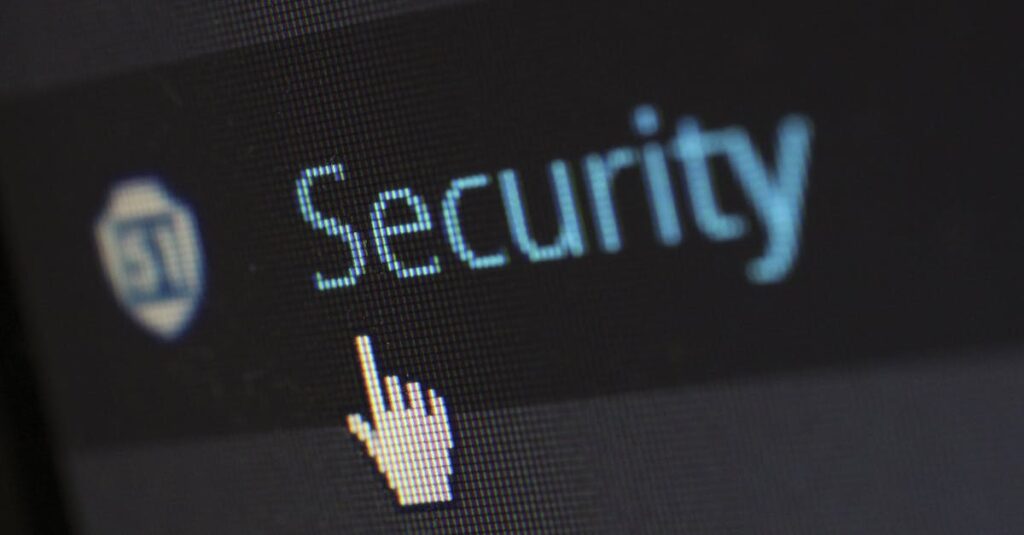Introduction: Why Should You Care About Data Privacy?
We all use the internet every day, whether it’s for shopping, socializing, or working. But how often do we stop to think about the data we’re giving away in exchange for these conveniences? From your search history to your location and even the apps you use, your digital footprint is being tracked constantly. So, what happens to all that information? Who’s keeping it safe? And why does it matter so much?
In the digital age, data privacy is no longer just a buzzword. It’s a necessity. Yet, despite its importance, many people still don’t fully grasp what’s at stake when their personal data is compromised. In this article, we’ll explore why data privacy is crucial, the risks involved, and what you can do to protect yourself online.
The Growing Threats to Our Privacy
To understand why data privacy matters, we need to first look at the growing number of threats we face in the digital world. Hackers, data brokers, and even some companies have access to far more of our personal information than we realize.
Remember the Facebook-Cambridge Analytica scandal? In 2018, it was revealed that millions of Facebook users had their personal data harvested without their consent and used to influence political campaigns. The scandal was a wake-up call for many people, highlighting just how easily personal data can be exploited.
Data Breaches: A Constant Danger
Data breaches are another threat we can’t ignore. Major companies, from Target to Equifax, have fallen victim to breaches over the years, exposing millions of people’s personal details. It’s not just about credit card numbers, think social security numbers, addresses, and even medical records. Once this data is stolen, it can be used for identity theft or sold on the dark web, where it’s hard to track down.
The scary thing? Data breaches happen all the time. In fact, a report from Risk Based Security found that over 37 billion records were exposed in data breaches in 2020 alone. That’s a staggering number, and one that’s growing every year.
The Hidden Dangers of Free Apps
Here’s another eye-opener: free apps. Many popular apps don’t charge you anything to use them, but they often make money by collecting and selling your data. While you might think the price is worth it for a free game or social media app, the long-term cost could be your privacy.
Take TikTok, for example. While it’s immensely popular, it has raised privacy concerns, especially about its data collection practices. The app gathers everything from location data to device information and browsing habits, all of which are then used to serve targeted ads or sold to third parties. Users might not even be aware of how much personal information they’re giving up just by scrolling through their feeds.
How Data Privacy Affects You: Real-Life Scenarios
Now that we understand the risks, let’s talk about how data privacy impacts our lives on a personal level. Imagine you’re planning a vacation. You search for flights, hotels, and things to do in a specific city. But as soon as you start browsing, ads start popping up, showing the exact flights and hotels you looked at. It might seem harmless at first, but what if this pattern continues? What if, after looking at vacation deals, you’re bombarded with loan offers or high-interest credit card promotions? Your financial and personal preferences are now being used to manipulate you into making a decision.
Or think about your social media posts. Many people overshare online without thinking about the consequences. Maybe you post a picture from your vacation or share your location in real-time. While you may think it’s harmless, this information can be used against you by cybercriminals to gain access to your personal accounts, or even by companies to target you with unwanted marketing.
Privacy vs. Convenience: The Balancing Act
In a world where convenience is king, people often sacrifice privacy without even realizing it. Every time you click “Agree” to terms and conditions, you’re granting companies access to your data. Some platforms make it incredibly easy to share data by asking for minimal permissions, while others bury privacy settings deep in the menu, making it harder to opt out.
Take Google, for example. Every time you use a Google service, whether it’s Gmail, Google Maps, or even the Google search engine, you’re handing over valuable data. Some people don’t mind this because they love the convenience of tailored services, like personalized recommendations or directions. But this convenience comes at a cost, Google collects an immense amount of information about you. If you’re okay with that tradeoff, then you’ve made an informed decision. But many people simply aren’t aware of the extent of data being collected.
What Can You Do to Protect Your Data?
So, what can you do to safeguard your data in this hyper-connected world? There are a few practical steps you can take today to improve your online privacy.
- Use Strong, Unique Passwords: Avoid using the same password across multiple sites. Consider a password manager to store your passwords securely.
- Enable Two-Factor Authentication (2FA): Many platforms offer 2FA, which adds an extra layer of security when logging in. It’s a simple step that makes a huge difference.
- Check Your Privacy Settings: Make sure you review the privacy settings on social media and other apps. Restrict the amount of personal information you share and disable location tracking whenever possible.
- Use Encryption Tools: Encrypting your messages and emails can prevent others from accessing your conversations. Services like Signal offer end-to-end encryption, keeping your chats private.
- Consider a VPN: A virtual private network (VPN) hides your internet activity from prying eyes, ensuring that your browsing history stays private.
Conclusion: Taking Control of Your Privacy
In the end, the responsibility to protect our data doesn’t fall solely on companies or governments, it’s also up to us as individuals. The digital age has brought about incredible conveniences, but it has also exposed us to new risks. If we don’t take steps to protect our privacy, we risk having our personal information misused, hacked, or sold.
At the same time, don’t let fear paralyze you. You don’t have to be a tech expert to protect your data. By staying informed, adjusting your privacy settings, and being mindful of what you share online, you can take control of your digital footprint. The more proactive you are, the better you can protect yourself and your personal information in the long run.
So, the next time you click “Accept” or share your information with an app, stop for a second and think, what’s the price of this convenience? And is it worth it?

